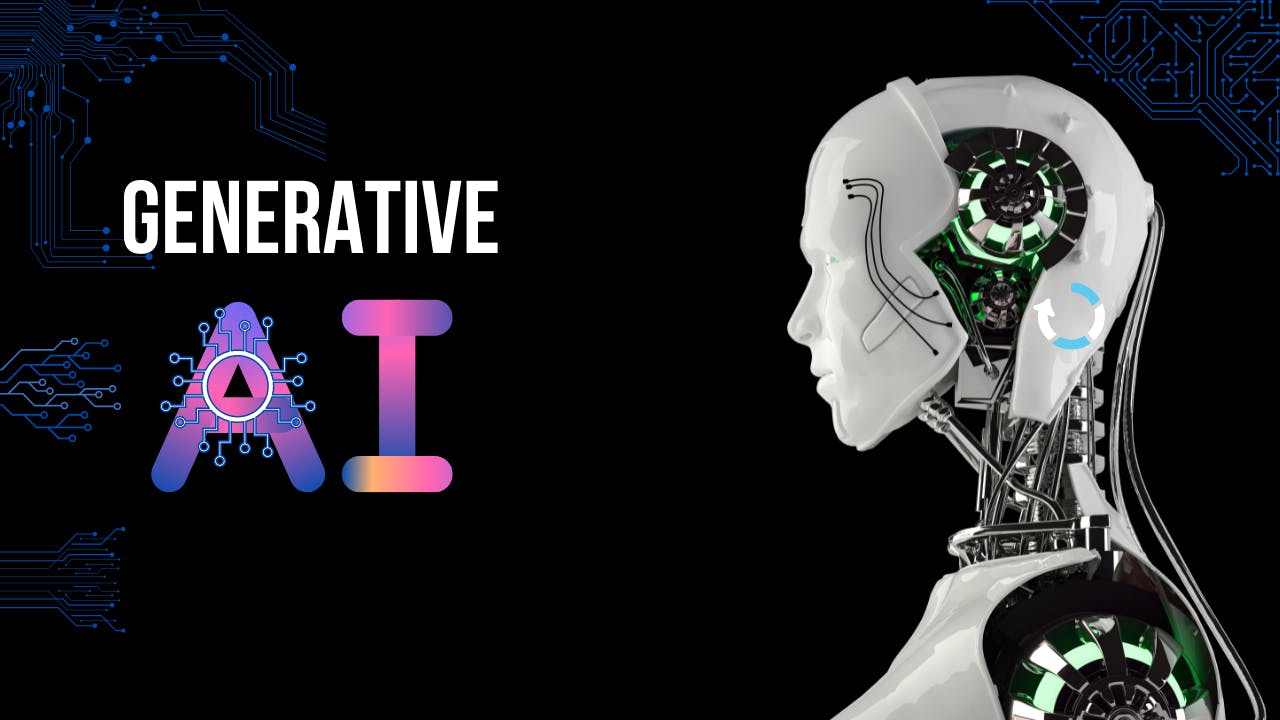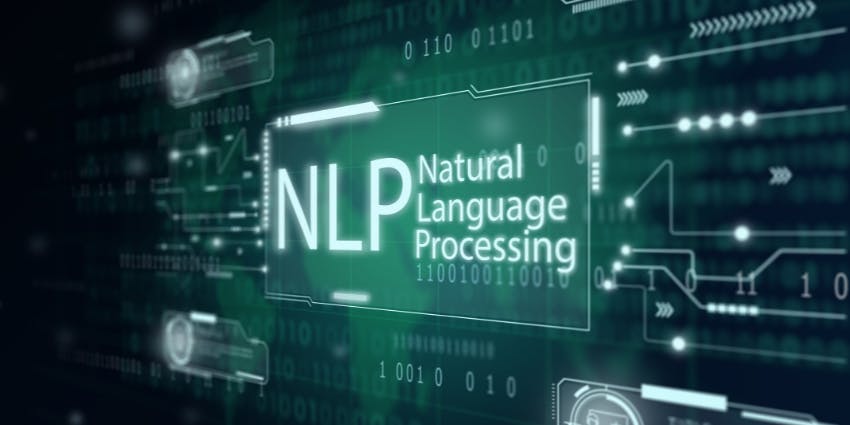The Role of Generative AI in Natural Language Processing (NLP)
How does Generative AI Enhance Natural Language Processing (NLP)?
Introduction:
In the era of artificial intelligence, the connection between Generative AI and Natural Language Processing (NLP) has emerged as a vital shift. As technology continues to evolve, understanding the intricacy between these two fields becomes crucial.
This blog explores the symbiotic relationship, shedding light on the roles played by Generative AI in enhancing NLP capabilities.
What is Generative AI?
Generative AI is a subdomain of artificial intelligence that focuses on creating content, be it text, images, or other forms, autonomously. Unlike traditional AI, which relies on pre-programmed responses, Generative AI development services have the ability to generate novel outputs based on its training data. This ability stems from complex algorithms that analyze patterns within the data and extrapolate to produce new, contextually relevant content.

What is Natural Language Processing?
A question that arises when generative AI is discussed: What is Natural Language Processing? NLP is a branch of AI that empowers machines to comprehend, interpret, and respond to human language. It involves the development of algorithms and models capable of understanding the nuances of natural language, enabling seamless interaction between humans and machines. NLP is not merely about recognizing words; it delves into the intricacies of syntax, semantics, and pragmatics to grasp the full spectrum of human communication.
Discussing NLP in the Context of Generative AI:
When we intertwine NLP with Generative AI, a new dimension unfolds. NLP algorithms enhanced by Generative AI can not only understand language but also generate human-like responses, opening doors to more nuanced and context-aware interactions.
The collaborative approach of Generative AI and NLP allows machines to transcend basic language processing. It empowers systems to not only comprehend the explicit meaning of words but also to grasp the underlying context, sentiment, and even subtle nuances that define human communication. This contextual understanding is a game-changer, as it enables machines to respond in a manner that goes beyond scripted replies.
The Role of Generative AI in Natural Language Processing (NLP):
Language Generation:
Generative AI contributes significantly to NLP by enabling machines to create coherent and contextually relevant language. This goes beyond simple text generation; it involves the synthesis of language that aligns with the context and purpose of the communication. This capability is particularly valuable in applications such as content creation, where generating engaging and personalized language is paramount.
Contextual Understanding:
Through extensive training, Generative AI equips NLP models with the ability to grasp the subtleties of context, leading to more accurate and context-aware language processing. This is crucial in scenarios where the meaning of a statement can vary based on the surrounding context. Whether it's understanding humor, sarcasm, or cultural references, the amalgamation of Generative AI and NLP enables machines to navigate the intricacies of human communication.
Conversational Agents:
Generative AI powers the development of sophisticated chatbots and virtual assistants, elevating the conversational experience by providing more natural and human-like interactions. These conversational agents are not confined to scripted responses; they can dynamically adapt to user input, making interactions more engaging and effective. This has significant implications for customer support, where an empathetic and context-aware response can enhance user satisfaction.
Data Augmentation:
By generating synthetic data, Generative AI aids NLP models in overcoming data scarcity issues, enhancing their training and performance. In NLP, the quality and diversity of training data play a crucial role. Generative AI can generate additional training samples, simulating a broader range of linguistic scenarios. This, in turn, improves the robustness of NLP models, making them more adept at handling real-world variations in language use.
Multilingual Capabilities:
Generative AI facilitates NLP models to comprehend and generate content in multiple languages, breaking down linguistic barriers and fostering global communication. The ability to seamlessly switch between languages and maintain linguistic accuracy is a testament to the versatility that Generative AI brings to NLP. This is particularly valuable in a connected world where cross-cultural communication is increasingly prevalent.
Creative Content Creation:
The integration of Generative AI in NLP allows for the creation of creative and engaging content, from marketing materials to personalized recommendations. This isn't limited to generating text; it extends to the synthesis of diverse media types, including images and videos. In marketing, for example, AI in Digital Marketing can assist in crafting compelling ad copy or generating visually appealing content tailored to specific audiences.
Impact of Generative AI in NLP on Business:
The infusion of Generative AI into NLP has transformative implications for businesses. The impact extends across various facets of operations, bringing about efficiency gains, improved user experiences, and new possibilities.
From a customer-centric perspective, businesses witness a notable enhancement in customer interactions. Advanced chatbots, powered by Generative AI and NLP, can understand user queries in context, providing more accurate and personalized responses. This not only improves customer satisfaction but also contributes to the overall brand image by showcasing a commitment to cutting-edge technology.

Moreover, the automation of content creation becomes a reality with NLP and Generative AI. Businesses can leverage these technologies to generate marketing materials, product descriptions, and other content at scale. This not only saves time and resources but also ensures consistency in messaging across different channels.
The impact isn't confined to customer-facing applications. Internally, Generative AI in NLP streamlines processes by automating routine tasks that involve language processing. Whether it's drafting emails, summarizing documents, or extracting insights from large volumes of text data, the collaboration between Generative AI and NLP amplifies the efficiency of knowledge workers.
In the realm of data analytics, the ability of Generative AI to augment data sets contributes to more robust and accurate models. This is particularly valuable in industries where data is scarce or where generating real-world data for training purposes is challenging. NLP models trained on diverse and representative data sets exhibit improved performance in understanding and processing language, leading to better-informed decision-making.
The curiosity of how does AI reduce human error is justifiable; but as advancements are made in the world of AI, the answer is quite simple. From a strategic standpoint, businesses embracing Generative AI in NLP gain a competitive edge. The ability to harness the power of language generation and understanding opens avenues for innovation in product development, marketing strategies, and customer engagement. It positions companies as pioneers in leveraging cutting-edge technology to stay ahead in an increasingly competitive landscape.
Conclusion:
In the evolving landscape of AI, the connection of Generative AI and NLP stands as a testament to the limitless possibilities of technology. As we continue to harness the power of machines to understand and generate human-like language, the future promises more seamless and enriched interactions, transforming the way we communicate and conduct business.
The journey has just begun, and the collaboration between Generative AI and NLP is poised to redefine the boundaries of what machines can achieve in the realm of natural language understanding and generation. Businesses that embrace this symbiotic relationship are not just adopting a technological solution; they are paving the way for a new era of intelligent communication, creativity, and efficiency.
As the impact of Generative AI in NLP continues to unfold, the potential for innovation across industries becomes boundless, heralding a future where man and machine converse in a language that transcends the limits of traditional interaction.

